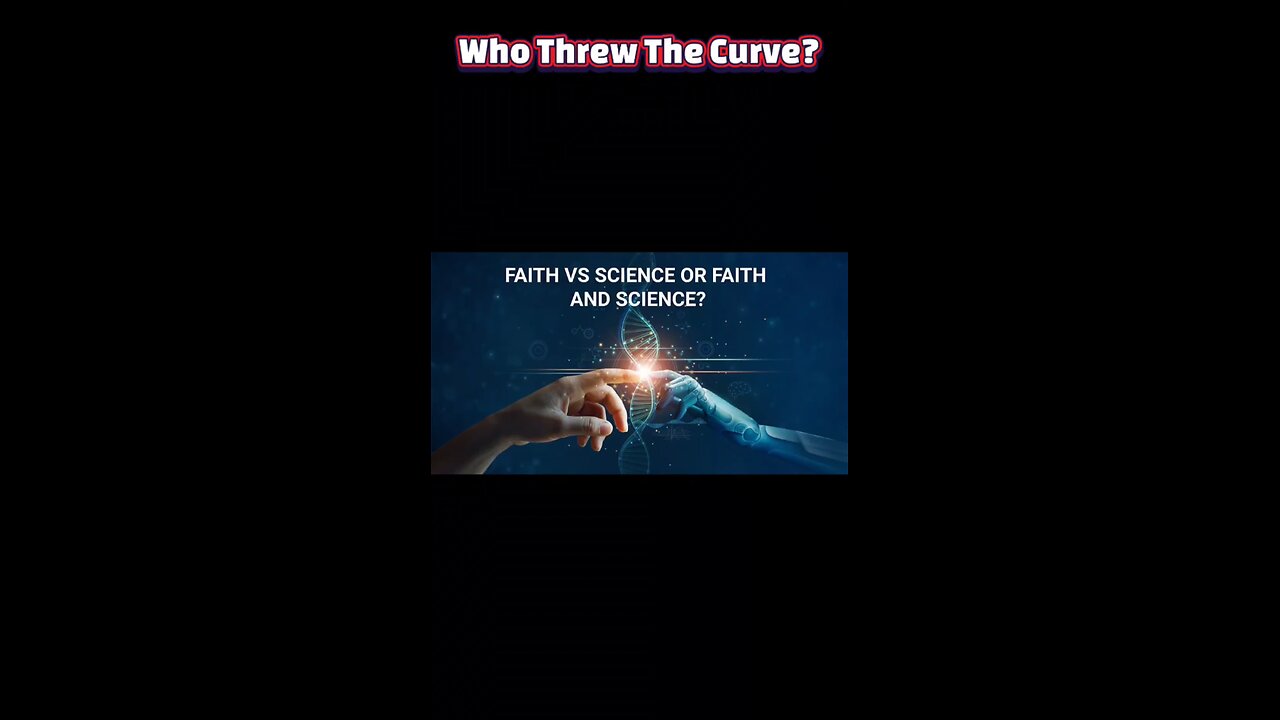Premium Only Content

The Dawkins Delusion Exposed: Why Atheism Misses Life’s True Purpose
#DawkinsDelusion #AtheismDebunked #PurposeOfLife #MeaningMatters #FaithVsScience #PhilosophyExplained #DebateDawkins #ExistentialQuestions
At the heart of the modern debate between faith and skepticism lies Alister and Joanna McGrath’s response to Richard Dawkins, The Dawkins Delusion? Atheist Fundamentalism and the Denial of the Divine, first published in February 2007. Framing their work not as a forensic, point-by-point refutation but as a challenge to representative arguments, the McGraths contend that Dawkins’s skepticism, though cloaked in scientific language, fails to grapple with the existential core of human experience. They argue that while atheism may dismantle religious assertions, it ultimately leaves the most essential question unanswered: Where do we find enduring purpose, meaning, and moral grounding?
Dawkins portrays faith as a juvenile delusion, dismissing millions of thoughtful individuals as victims of intellectual immaturity. Alister McGrath finds this reductive stance not only unfair but antithetical to evidence-based thinking. He charges Dawkins with substituting “turbocharged rhetoric and highly selective manipulation of facts for careful, evidence-based thinking,” likening The God Delusion to “slick hellfire preaching” rather than rigorous scientific discourse. By refusing to engage honestly with theological arguments, Dawkins shuts down the very scholarly conventions he claims to champion.
Central to McGrath’s critique is the relationship between science and religion. Rather than the stark compartmentalization Richard Dawkins assumes, McGrath draws on Stephen Jay Gould’s notion of non-overlapping magisteria and proposes a model of partially overlapping magisteria. In this view, science addresses the temporal and empirical, while religion speaks to the spiritual and moral, two domains that, though distinct, inevitably intersect when confronting questions of ultimate significance. Atheism, in McGrath’s account, remains tethered to the empirical magisterium and cannot adequately cross into the spiritual realm where meaning and moral purpose reside.
Beyond academic frameworks, the most glaring failure of atheism, McGrath insists, is its inability to ground morality and meaning in anything beyond evolutionary by-products or memetic contagion. Dawkins’s depiction of religion as an evolutionary relic or a “memetic virus” may explain its origins, but it offers no substrate for objective moral values or enduring purpose. McGrath’s analysis underscores that while atheistic perspectives can chart the mechanics of belief, they leave the soul’s deepest questions, Why am I here? What gives life value?, unanswered.
In the end, McGrath argues that the explanatory power of a monotheistic God extends even to the capacity of science itself to Illuminate Reality. The most economical and coherent account of why the universe is intelligible, why moral laws resonate in our consciences, and why we seek purpose lies in the Christian God of divine reason and love. Atheism, formidable in its critique of religious claims, ultimately falters at the gateway to what matters most: an anchor for meaning, a foundation for morality, and a compass pointing beyond mere survival to transcendent purpose.
-
 1:49:03
1:49:03
Graham Allen
3 hours agoDems Are The Party Of TERRORIST & VIOLENT CRIMINALS! Jon Bolton INDICTED! Trump Threatens Hamas!
91.8K63 -
 LIVE
LIVE
The Big Mig™
3 hours agoJohn Bolton Indicted on the Espionage Act on 18 Federal Counts , Who's Next
5,210 watching -
 LIVE
LIVE
Badlands Media
9 hours agoBadlands Daily: October 17, 2025
3,675 watching -
 2:33:45
2:33:45
Matt Kohrs
13 hours agoLive Trading Futures & Options || Payday Friday!!!
20K1 -
 1:45
1:45
From Zero → Viral with AI
7 hours agoAI Isn’t Taking Over — It’s Leveling the Playing Field | Work Smarter, Not Harder
20.1K15 -
 1:09:36
1:09:36
Chad Prather
19 hours agoHow to Love Like Jesus in a World That’s Lost Its Heart!
54.9K38 -
 1:05:41
1:05:41
Crypto Power Hour
4 hours ago $1.57 earnedCrypto Trading Strategies You Need to Know
23.3K6 -
 1:54:44
1:54:44
The Chris Salcedo Show
15 hours ago $5.14 earnedReckoning on Injustices Perpetrated Against Americans
26.2K2 -
 1:33:18
1:33:18
Game On!
22 hours ago $1.69 earnedAnother Football Friday! BEST BETS For The Weekend!
36.1K1 -
 21:44
21:44
DeVory Darkins
12 hours ago $9.37 earnedMamdani BODIES Cuomo in fatal debate as California gets exposed for homeless fraud scheme
31.1K65